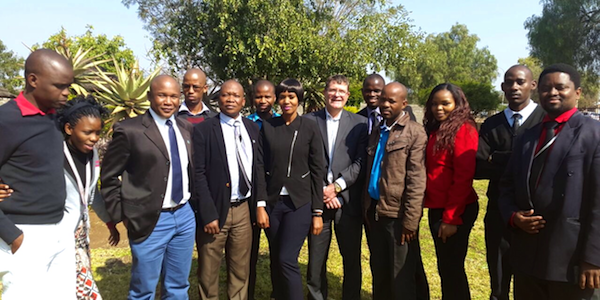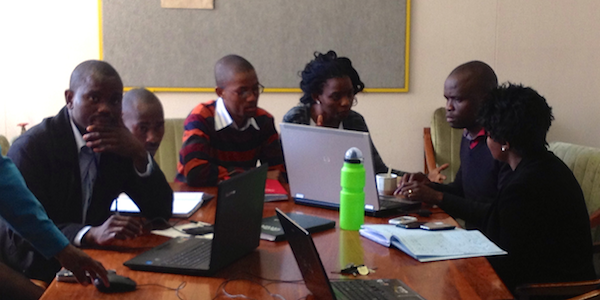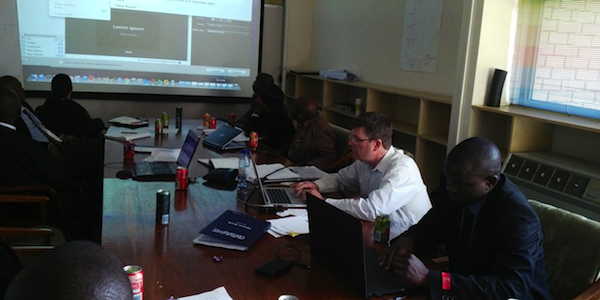Botswana’s water accounting unit is better prepared to produce regularly-released water accounts using improved techniques for data collection and analysis following a week-long training organized by the Wealth Accounting and Valuation of Ecosystem Services (WAVES) Partnership.
The training workshop, held July 22-30, 2015, in Gaborone, was attended by 12 participants from the Department of Water Affairs and Statistics Botswana. The water accounts technical working group also includes members from the Ministry of Agriculture and Department of Mines.
Dr. Michael Vardon, Australian National University, and a member of the WAVES’ Policy and Technical Experts Committee, led the training. “The Botswana government has established the team and is putting in place the processes and systems needed to regularly produce the accounts,” said Vardon.
Speaking for the WAVES-Botswana secretariat, Mr. Edwin Itshekeng, chief economist for natural capital accounting, said the main purpose of the workshop was to empower the water accounting unit by providing a platform to share the knowledge and skills required to produce water accounts.
Mr. Ogopotse B. Pule, head of the water accounting unit, said participants met all the objectives of the training, which included analysis of past reports, guidance on the use of these reports, identifying gaps and areas for improvement.
“We truly appreciate the support of WAVES in providing expertise at the level of Dr. Vardon,” said Pule. “He has given us valuable feedback on the implementing tools, and we have managed to get many tangible benefits.”
Outcomes of the training include:
- Update of previously published water accounts (for 2010-11 to 2013-14).
- Draft outline of the next edition of water accounts (due out March 2016).
- Draft time series of major water account aggregates (1990 to 2014).
- Diagram of water flows within the Botswana economy for 2013-14.
- Draft templates and planning for the collection of data from major water users, including mining, agriculture, and food and beverage manufacturing (including diagrams of flows).
- Commencement of work on regional water accounts.
- A system to announce multiple release dates of accounts (first, second, and final).
"The training has already made a difference, especially with our time series,” said Ms. Tumisang Seikanyeng, an engineer with the Department of Water Affairs. “We learned how to do checks when we collect data from our stakeholders, and are confident we can improve the quality of our reporting.”
Ikanyeng said the training also supported the institutionalization of the water accounts. “We are ready to do everything, even after the World Bank support is no longer there.”
Another participant, Mr. Kwashirai Chigodora, who is responsible for environmental statistics at Statistics Botswana, said the data collection tools and questionnaires would assist them in getting information from stakeholders more effectively and efficiently, and hoped they would understand “why we ask them for so much information, and why this information is important for the development of policies.”
Botswana’s water accounts provide data on stocks, flows and use to better assess the availability, uses, and economic contribution of water.
In addition to water accounts, Botswana has produced mineral accounts, nearly complete energy accounts, and will soon begin planning to construct tourism accounts.



